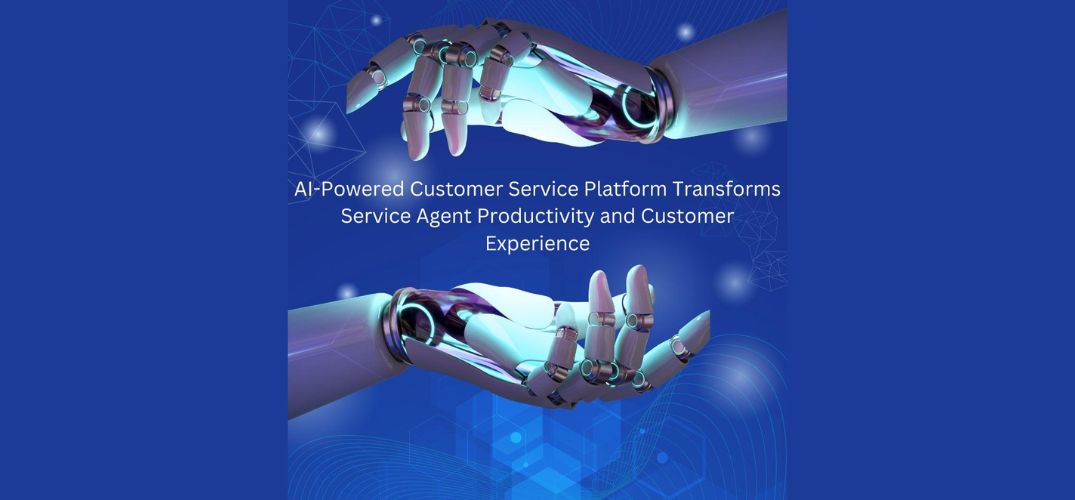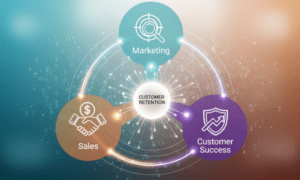A pioneering study by Anirudh Sharma Peri, a technology researcher and customer service specialist in the United States, reveals how AI-powered platforms are transforming customer service operations. His research demonstrates dramatic improvements in service delivery through advanced technology integration, with service response times dropping from 15-20 minutes to 5-8 minutes and substantial gains in agent productivity.
The Digital Evolution
The marriage of artificial intelligence and automation in modern customer service platforms marks a revolutionary advancement in customer relationship management. These next-generation systems seamlessly blend cloud-native architecture with real-time data processing, creating a unified service environment that transforms how organizations interact with customers. The platform enables instant data synchronization across multiple service channels while maintaining robust security measures, allowing service agents to access comprehensive customer information instantly and securely. This technological integration has redefined the possibilities for personalized, efficient customer service delivery.
Smart Workspace Revolution
A centralized workspace architecture stands at the core of this service transformation, acting as a unified command center for customer interactions. The platform’s sophisticated design enables seamless data flow across all service channels while ensuring top-tier security. This streamlined integration has dramatically enhanced service efficiency, slashing average case resolution times from 15-20 minutes to just 5-8 minutes, marking a significant breakthrough in customer service delivery speed.
AI as the Game-Changer
The deployment of AI-powered tools represents a game-changing shift in customer service operations. These advanced systems harness sophisticated natural language processing and machine learning algorithms to boost agent effectiveness and streamline decision-making. The platform continuously learns from customer interactions, analyzing communication patterns and behavioral trends to develop increasingly sophisticated response models. This intelligent system supports both automated solutions and human-assisted service, creating a hybrid approach that combines the efficiency of automation with the nuanced understanding of human agents.
Breakthrough in Service Routing
The platform’s intelligent routing system leverages advanced algorithms to perfectly match customers with the most suitable agents across all communication channels. This smart technology considers multiple factors – from agent expertise and past performance to current workload levels – to optimize service delivery. The result is a balanced distribution of tasks that maximizes efficiency while ensuring high-quality customer interactions.
Measurable Impact
Performance metrics reveal dramatic improvements across all service areas following the platform’s implementation. Service centers report significantly reduced response times thanks to enhanced routing and automated task prioritization. The most notable gains appear in complex cases that traditionally required extensive research and multiple customer touchpoints. The data shows marked efficiency improvements in case resolution times, with agents now handling challenging situations more effectively through AI-assisted support.
Future Trajectory
The platform’s future development indicates significant potential for advancement in artificial intelligence capabilities. Next-generation customer service platforms are expected to incorporate more sophisticated neural networks and machine learning algorithms, enabling enhanced pattern recognition in customer interactions while maintaining robust security protocols.
Market Transformation
The landscape of customer service is undergoing a fundamental transformation, reshaping how organizations engage with their customers. This evolution moves service delivery from reactive to proactive approaches, enabling organizations to anticipate and address customer needs before they become issues. Through advanced technology, companies can now deliver highly personalized service experiences while maintaining strict data security protocols, marking a new era in customer engagement.
Workforce Evolution
The impact on workforce development indicates a growing need for specialized skills in AI systems management. Future service environments will likely require a workforce that understands both customer service principles and the technical aspects of AI-powered systems, necessitating new approaches to training and development.
In his conclusion, Anirudh Sharma Peri emphasizes that the findings demonstrate the transformative potential of integrated service platforms in modern business operations, providing valuable insights for organizations seeking to enhance their service capabilities through technology integration while maintaining robust security measures and operational excellence.The comprehensive analysis not only highlights the immediate benefits of AI-powered customer service platforms but also points to a future where technology and human expertise work in harmony to deliver exceptional customer experiences. The innovation represents a significant step forward in the evolution of customer service, promising continued advancement in service delivery capabilities while maintaining the essential human element in customer interactions.



































